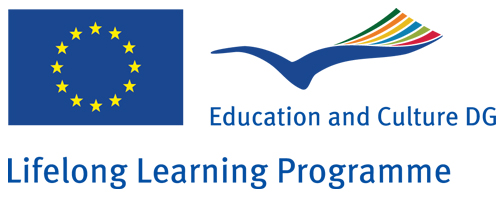|

Cultural Vehicles in Education - assisting
the needs of vulnerable social groups
To be filled in by the teachers of pilot
workshops

Die Wille gGmbH
"The inner child, childhood and the education
of children in kindergartens and day care centres"
| Subject of the unit |
Competences (key Lisbon competences) |
Practical skills |
Pedagogical aim |
Methods |
Didactic materials |
Duration and date |
childhood and the education of children
|
Social competences
(personal, interpersonal,
intercultural)
|
The ability to analyse ones own behaviour pertaining
to ones own childhood and ones approach to ones
own children (as opposed to other people`s children |
Improving ones approach to "difficult" children |
Team work,
brainstorming, concentration exercises, discussion, "imaginary journey"
|
Flipchart,
literary quotations from poetry or prose texts dealing with the topic
of childhood;
Hand-outs concerning the topic "Listening" as
well as agreements on rules for the communication
within the group |
6 sessions
(duration:
60 minutes each)
|
1.A description of the activities
undertaken during the unit, including comments on
the reactions of the group/individual participants
- Introduction of the total qualification
measure; discussion about the goals (self-perception
and perception of others, creativity increasing
one`s self-esteem)
- Name game: the participants introduce
themselves and briefly describe their likes and
dislikes.
- "If you love your child, you
need no method to bring it up" (adage from India).
Result: a lively discussion about the meaning of "upbringing" and
what love is basically about.
- Afterwards all participant state
what they mean when they say "love".
The definitions are written down on the flipchart
and subsequently discussed.
- The trainer suggests that the group
sets up rules for communication in the group, which
are finally subsumised in a written agreement (hand-out
based on Ruth Cohn).
- Game "ABC-Relay" (goal
is to activate the left hand brain region, to promote
concentration abilities and to have fun).
- "Phantasy Journey": meditation
exercise dealing with one's physical self and one's
inner child.
- Subsequent feedback on what the
participants saw and felt on their "Journey" (goal
hightened awareness, accepting the inner process
of self-awareness).
- What does one`s own childhood have
to do with interacting with the children in the
kindergartens and day care centres? Each participant
answers this question from his own point of view.
Discussion about the difference between dealing
with one`s own children and those of others. (for
example, one is usually more strict with one`s
own offspring, other people`s children often contribute
to more understanding and tolerance for one`s own.)
- Feedback: The participants express
how they felt about today`s session. What could
have been different or better?
2. Was the aim of the unit
achieved (the implementation of practical skills
and the pedagogical aim)?
- The aim of the unit was achieved. The extraordinarily
lively and motivated participation of the learners
was sufficient proof of this.
3. Other remarks (for example
on the interaction between artistic and educational
elements)
- Description of the exercise "ABC-Relay":
The participants gather in a circle, one of them
stands in the middle. On cue, the one in the middle
recites the alphabet in his head. Meanwhile, the
other participants pass an object around. When the
trainer says "stop", the person in the
middle must tell the letter in the alphabet, he has
just thought of to the person holding the object.
This person must immediately pass the object on and
find four words beginning with the letter before
the object returns to him. If he /she does not succeed,
he/she must take the other person`s place in the
middle of the circle. And so on....
This exercise helps the participants to relax and
have fun. At the same time, the capacity of reaction,
concentration abilities and verbal competences are
promoted and the participants experience what it feels
like to be in the centre of attention.
|